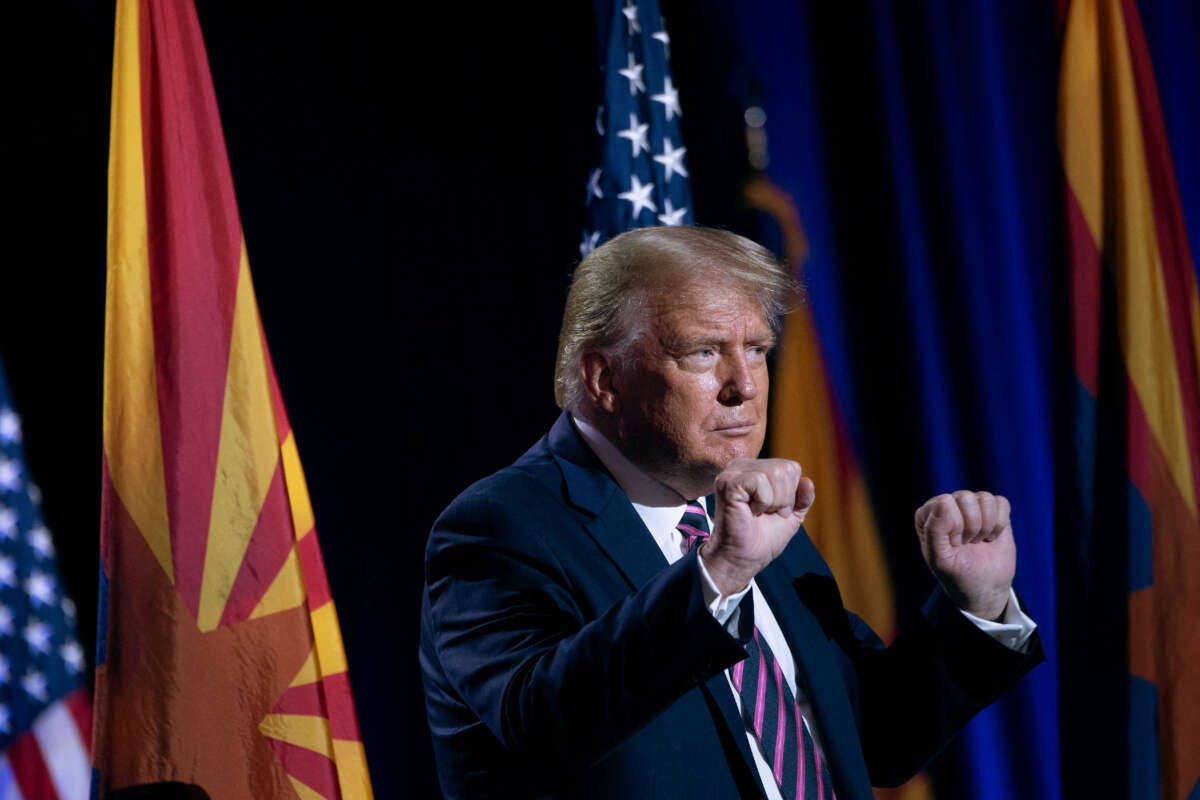Honest, paywall-free news is rare. Please support our boldly independent journalism with a donation of any size.
An Arizona grand jury that is investigating attempts to interfere with the outcome of the 2020 presidential election has subpoenaed a number of Republican officials in the state who served as fake electors.
In several states where President Joe Biden narrowly defeated former President Donald Trump, so-called “alternate electors” — often described as “fake electors” by media to denote that they had no legitimacy whatsoever — assembled at state capitols at the same time that legitimate electors did in December 2020, creating false documentation that Trump had won those states. In some cases, fake electors appeared to have been told that they were only assembled so that, in the event that court challenges later became successful, their states’ elector votes could be switched to Trump.
No such challenges were ever successful. But the plot went forward anyway, with Trump encouraging his vice president, Mike Pence, to count the fake electors as legitimate, or at least deem the real electors’ votes as uncountable, after several of the false documents were sent to Washington D.C. with hopes by Trump allies that they’d be included in the Electoral College certification ceremony. (Pence ultimately refused to participate in the plan, leading to the attack on the U.S. Capitol on January 6, 2021, by a mob of Trump loyalists.)
Charges against fake electors, including in Nevada, Michigan and Georgia, have been filed at the state level, with investigations occurring in other states such as Pennsylvania and Wisconsin.
For around a year, Arizona Attorney General Kris Mayes (D) has been leading a grand jury investigation into state Republicans’ involvement in the plot. According to a report from Politico, subpoenas were issued “in recent weeks” to the fake electors who signed the document alleging that Trump won the state.
It’s unclear for now whether Mayes will issue charges against the fake electors, or focus on Trump 2020 campaign officials instead. The subpoenas request that each of the Republicans who were part of the slate of fake electors testify before the grand jury to explain their involvement in the scheme.
Beyond looking into the fake electors’ actions themselves, Mayes’s office is also asking about Trump, his former White House Chief of Staff Mark Meadows, and former Trump attorneys John Eastman and Kenneth Chesebro, who orchestrated the fake electors plot. A source speaking to The Washington Post about the subpoenas has indicated that they put particular emphasis on learning more about Chesebro’s involvement.
Mayes, who has previously described her investigation as “robust,” has indicated that it will conclude the inquiry in the near future.
Biden won Arizona’s 11 Electoral College votes in 2020 by defeating Trump with one of the narrowest margins in state history. The state, which has long been a Republican stronghold, has undergone a huge political shift in recent years, giving it a “swing” state status in modern statewide contests.
Trump is silencing political dissent. We appeal for your support.
Progressive nonprofits are the latest target caught in Trump’s crosshairs. With the aim of eliminating political opposition, Trump and his sycophants are working to curb government funding, constrain private foundations, and even cut tax-exempt status from organizations he dislikes.
We’re concerned, because Truthout is not immune to such bad-faith attacks.
We can only resist Trump’s attacks by cultivating a strong base of support. The right-wing mediasphere is funded comfortably by billionaire owners and venture capitalist philanthropists. At Truthout, we have you.
Truthout has launched a fundraiser to raise $50,000 in the next 9 days. Please take a meaningful action in the fight against authoritarianism: make a one-time or monthly donation to Truthout. If you have the means, please dig deep.
